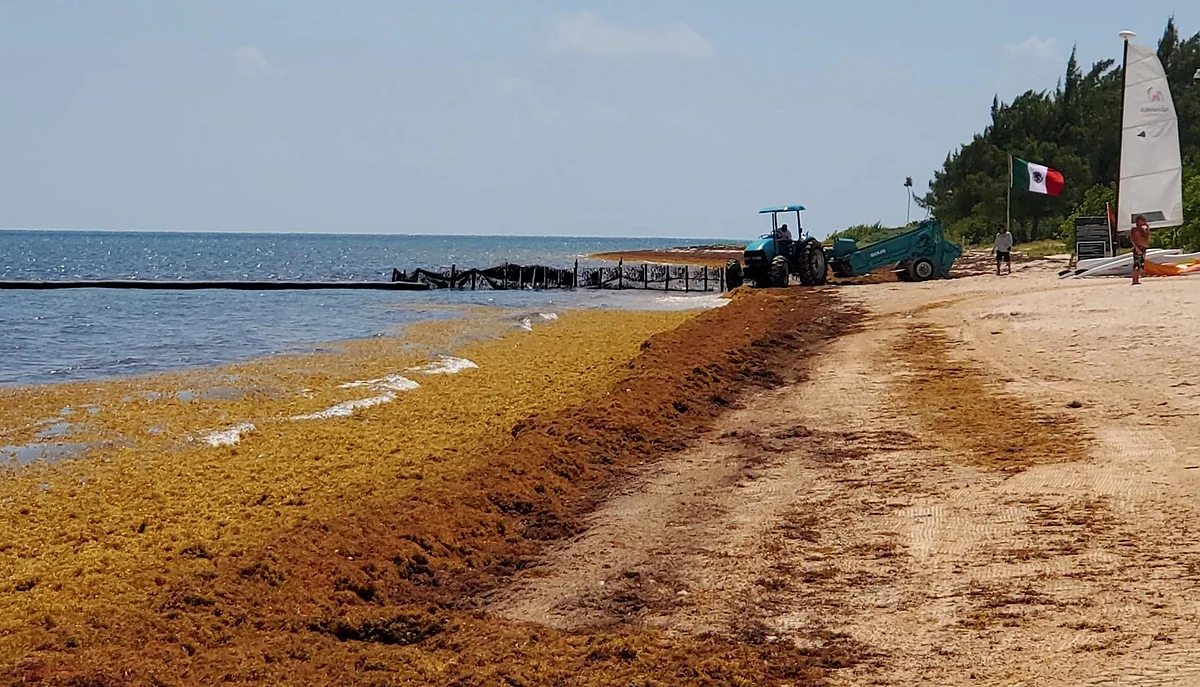Plastic pollution is a global problem. Recently, rocks fused with melted plastic have been found on Trindade Island, a remote volcanic outcrop a three- to four-day boat trip off the coast of Brazil.
The remote Brazilian island is best known as a nesting site for green turtles.
Scientists have discovered a new kind of igneous rock, plastistone, formed almost completely from plastic, on a remote island in Brazil, said Fernanda Avelar Santos, a geologist informed by the news agency AFP.
Plastic rocks have been previously found in various parts of the world. Researchers documented plastiglomerates – rock, sand and other debris fused together by melted plastic – in Hawaii in 2014, for instance, and pyroplastics, rock-like pebbles formed out of burnt plastic, on the southwest coast of England in 2019.
First find in Brazil
Geologist Fernanda Avelar Santos was startled to find an unsettling sign of human impact on the otherwise untouched landscape: rocks formed from the glut of plastic pollution floating in the ocean.
Santos first found the plastic rocks in 2019, when she traveled to the island to research her doctoral thesis on a completely different topic -- landslides, erosion and other "geological risks."
She was working near a protected nature reserve known as Turtle Beach, the world's largest breeding ground for the endangered green turtle, when she came across a large outcrop of the peculiar-looking blue-green rocks.
Intrigued, she took some back to her lab after her two-month expedition.
Analyzing them, she and her team identified the specimens as a new kind of geological formation, merging the materials and processes the Earth has used to form rocks for billions of years with a new ingredient: plastic trash.
"We concluded that human beings are now acting as a geological agent, influencing processes that were previously completely natural, like rock formation," she told AFP.
"It fits in with the idea of the Anthropocene, which scientists are talking about a lot these days: the geological era of human beings influencing the planet's natural processes. This type of rock-like plastic will be preserved in the geological record and mark the Anthropocene."
Island Paradise
The finding left her 'disturbed' and 'upset,' said Santos, a professor at the Federal University of Parana, in southern Brazil.
She describes Trindade as 'like paradise,' a beautiful tropical island whose remoteness has made it a refuge for all sorts of species -- sea birds, fish found only there, nearly extinct crabs, the green turtle.
The only human presence on the South Atlantic island is a small Brazilian military base and a scientific research center.
Published study
Their research, published in the Marine Pollution Bulletin journal in September 2022, details how they found the new plastic rock, along with samples of plastiglomerates and pyroplastics on the island's beach. Pyroplastics were also found on the island's coral reef.
"Marine pollution is provoking a paradigm shift for concepts of rock and sedimentary deposit formations," her team wrote.
"Human interventions are now so pervasive that one has to question what is truly natural."
The main ingredient in the rocks Santos discovered was remnants of fishing nets, they found.
But ocean currents have also swept an abundance of bottles, household waste and other plastic trash from around the world to the island, she said.
Santos said she plans to make the topic her main research focus.
Trindade "is the most pristine place I've ever seen," she said.







